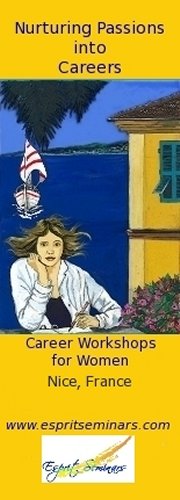People and Places
Out of Africa... to Apricale.
Merle Jacobs is a lady with a story. She lives on the outskirts of the beautiful village of Apricale and it has been a place she has called home since 1997. She feels Italian in every way but in truth... you can take the girl out of Africa but you can't take Africa out of the girl...

Merle was born in Johannesburg, South Africa and had a very privileged upbringing. It was following the French inquisition of 1672 that her ancestors arrived to settle not far from Cape Town where they planted vines. In keeping with the way things were, they had slaves working for them.
As a young child Merle was a bright child and although not fond of school, by the age of 6 she was placed in a class of children who were 9 years old but this proved to be socially challenging for the young girl. She was an extremely observant girl with a passion for writing and horse riding but it was her love of literature that became her motivation and inspiration to strive for change. As a self-confessed activist Merle was never comfortable with what she saw and witnessed in her own country. She despised the government at the time and their movement for the social engineering and implementation of apartheid, so she began to make waves and stand up against racism. She believed that all men were equal and preferred to spend her time in the townships getting to know real people who would share their stories and fears. She would call them her fellow mankind. In the 1980's children were often imprisoned and tortured before being returned to the family and tried to make them spy on their family and neighbours. These were not easy times and Merle was not prepared to just accept and stay quiet.
At the age of 18 Merle married her Italian sweetheart. Soon after she gave birth to the first of her two daughters. Her husband was a photographer and their circle of friends and acquaintances were other journalists, media folk, professors and musicians that became famous such as the jazz pianist Abdullah Ibrahim. These people were all from different backgrounds and nationalities who were equally passionate about situations, about apartheid. They would frequent gatherings where it did not matter about the colour of the skin and what was important was to speak with one voice and indeed all of these people helped in the fight for freedom. This was a generation that fought against apartheid, in any manner they could. During this time Merle started writing about the world around her. When the situation became precarious Merle and her husband and two young children decided to move to Italy, selling all they had owned. The South African government refused Merle her citizenship and so she had to leave on an exit permit which meant that they would be leaving the country permanently. Being married to an Italian entitled her to an Italian passport.
New life, new adventures, new challenges. Merle was able to use her qualification in education to teach English to the gentry and the affluent connected with the silk industry. Even though she could not return to Africa, Merle continued to raise awareness, write and become active in new groups that opposed apartheid and to talk about the real horrors of apartheid.
It was following news of her brother's serious illness that Merle had been granted special permission to enter South Africa but she became quickly aware of the presence of the security police that followed her and monitored everything she did. These were still perilous times. She had already lost friends, having become victims of the regime.
Back in Italy, Merle carved her life and found karma through Taoism. She continued to teach and to raise awareness of those terrible apartheid years by giving lectures and talks. She also continued to write.
"This is not to keep alive what happened but to make sure that we never repeat the atrocities of apartheid". she says.
In 2011 Merle made her last visit to South Africa. This was of course post apartheid. A new South Africa where she was free to mingle with everyone and with no threat. This was/is the Africa she could only once-upon-a-time dream of where she did not see black or white, she just saw people. There is a sadness even now when you speak with Merle Jacobs and questions of why these situations occurred may be futile but the lessons and a better understanding of the realities of the time can deepen our conscience and make us aware of how lucky we really are. "History must never be allowed to repeat itself" says Merle.
Since 2008, Merle has enjoyed painting and is looking to publish her written works. This is a collection of books and poems in both English and Italian.

Merle Jacobs & Anna Fill



